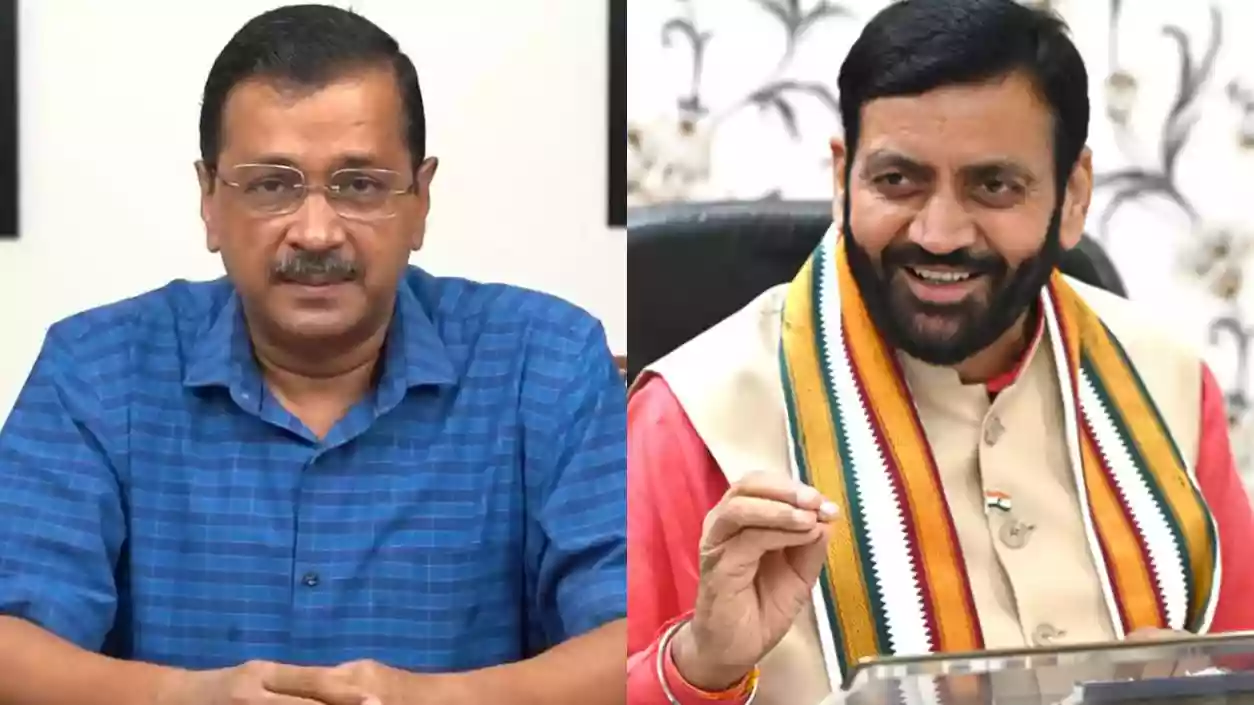.gif)
.gif)

Arvind Kejriwal's claim that the Haryana government deliberately poisoned the Yamuna water supplied to Delhi has led to a fierce political clash between the Aam Aadmi Party (AAP) and the Bharatiya Janata Party (BJP)-led Haryana government. On Monday, during an election rally in Delhi, Kejriwal alleged that the BJP-ruled Haryana government had mixed poison, specifically high levels of ammonia, in the water flowing into Delhi. He further stated that the Delhi Jal Board (DJB) engineers had detected this contamination and prevented the harmful water from entering the capital’s supply, potentially averting a public health crisis. Kejriwal accused the Haryana government of attempting to defame AAP by orchestrating such a situation in the lead-up to the Delhi elections.
In retaliation, Haryana Chief Minister Nayab Singh Saini dismissed Kejriwal’s claims, calling them false and defamatory. Saini warned that if Kejriwal did not apologize to both the people of Haryana and Delhi for his statements, a defamation suit would be filed. The Haryana CM also criticized Kejriwal’s management of water distribution in Delhi, pointing out that water scarcity in the capital was not due to the lack of supply from Haryana but rather issues within Delhi’s water distribution system, which had been mismanaged for years. Saini also rejected the allegation of poisoning, emphasizing that Haryana has always treated the Yamuna as a sacred river and that no such action had taken place.
Haryana’s Health Minister Anil Vij also condemned Kejriwal’s statements, calling him “a factory of lies.” He suggested that journalists should inspect the water entering Delhi from Haryana and compare it with the water within Delhi. Vij further asserted that the responsibility for cleaning the Yamuna lay with the Delhi government, not Haryana. He criticized Kejriwal for failing to resolve water quality and distribution issues in Delhi, despite large allocations of funds for river cleaning and water treatment.
Delhi Chief Minister Atishi defended Kejriwal, asserting that the ammonia levels in the Yamuna were indeed abnormally high and that this had been verified by DJB engineers. Atishi referred to a letter from DJB CEO Shilpa Shinde, which clarified that the DJB’s water treatment plants could treat water with ammonia levels up to 2.5 ppm. However, the water coming from the Yamuna had ammonia levels of 6.5 ppm, more than double the safe limit. Atishi argued that this confirmed Kejriwal’s claims of contamination and that the Haryana government’s actions were responsible for the harmful levels of ammonia.
The controversy intensified as Congress joined the criticism of Kejriwal’s remarks. Congress party leaders demanded that Kejriwal provide proof of his allegations, particularly the type of poison allegedly present in the water. They questioned why no action had been taken against him by the authorities, given the severity of his claims. Congress also argued that if a common person had made such an accusation, they would have faced immediate legal consequences. Sandeep Dikshit, Congress candidate for New Delhi, also demanded an explanation from Kejriwal on how the alleged poisoning occurred.
Meanwhile, the Election Commission of India has instructed the Haryana government to submit a report by January 28 regarding the allegations of ammonia contamination in the water supplied to Delhi. This directive follows a joint representation made by Delhi CM Atishi and Punjab CM Bhagwant Mann, who raised concerns about the safety of the water supply. The controversy surrounding the Yamuna’s water quality has become a key issue in the Delhi Assembly elections, with both the AAP and BJP using the situation to target each other.